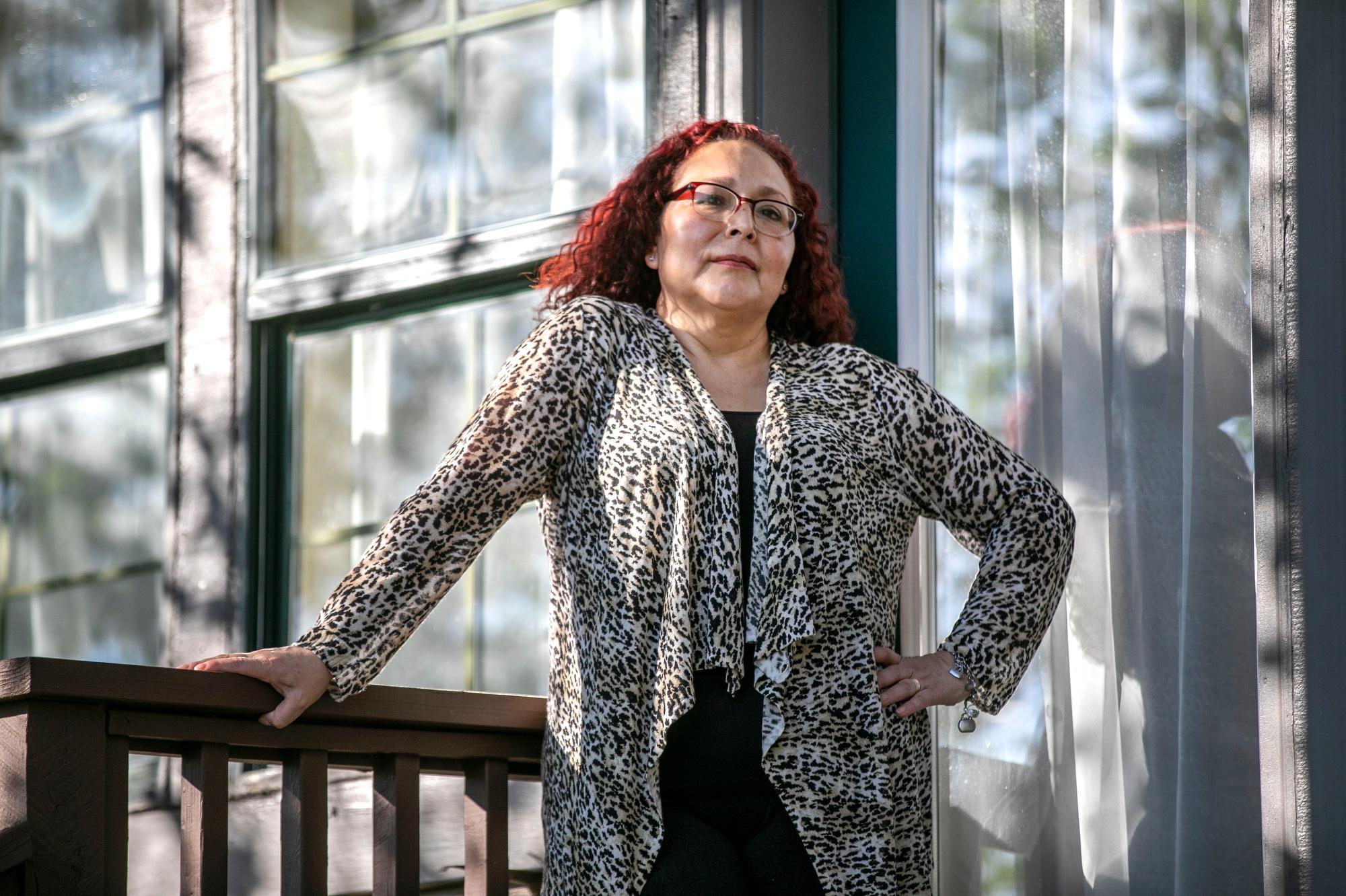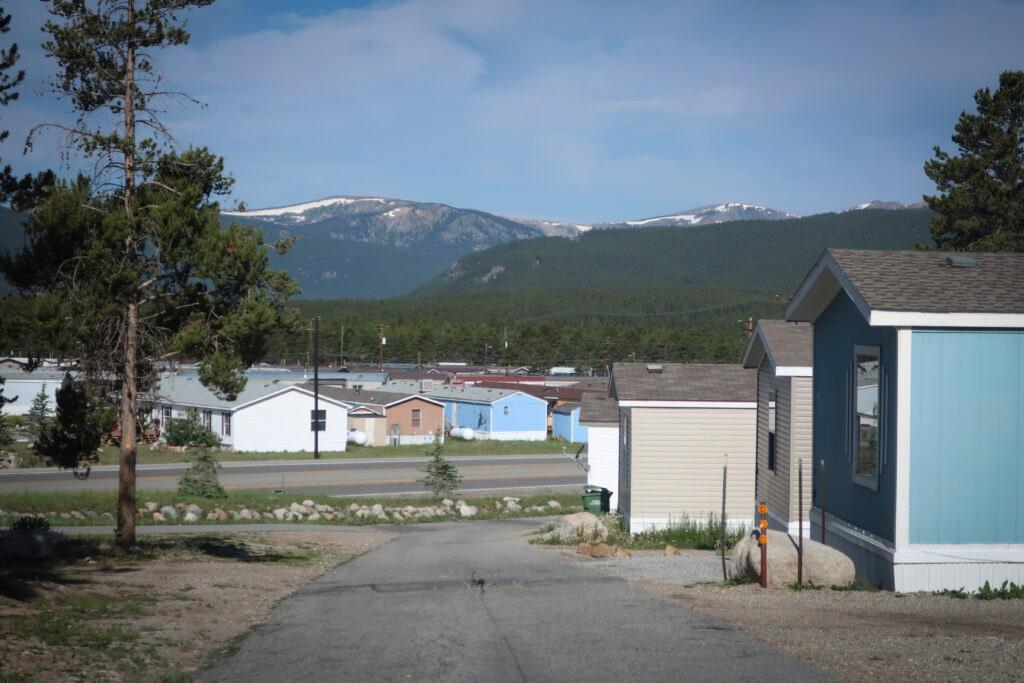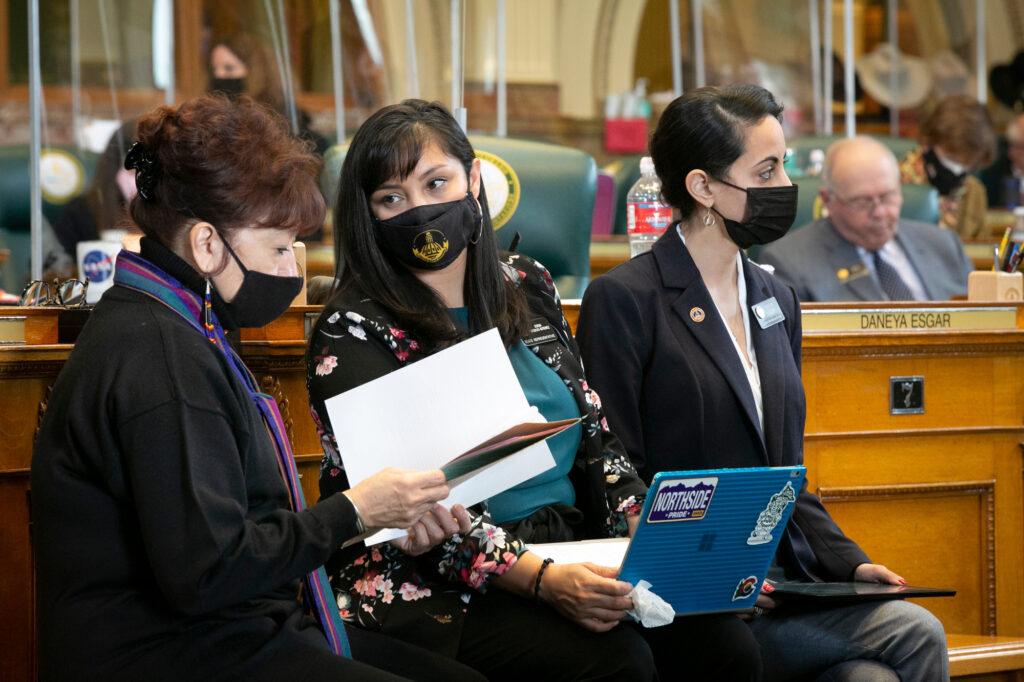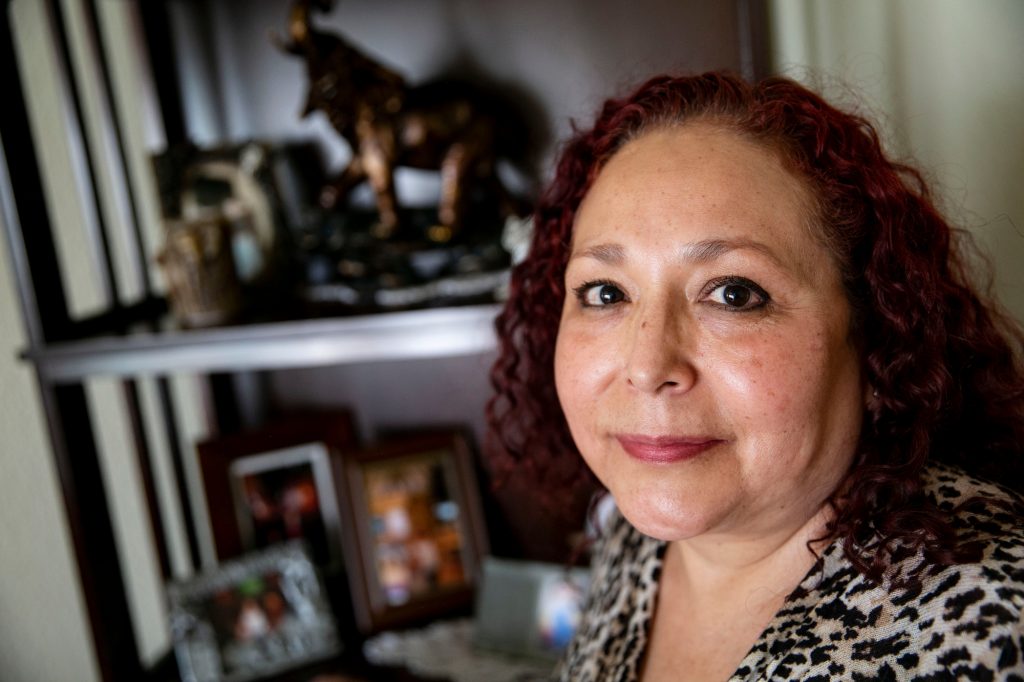
Some people refer to the “before times” and the “after times” — the unshakeable sense that the pandemic has divided our lives into distinctly different periods.
For Susana, that feeling is especially visceral.
“Before, I was living like in a dream. I had work, I was paid well, I was getting a lot of tips,” the 53-year-old explained on a recent evening. “But now, I live with fear.”
Susana, who spoke through an interpreter during an interview, lives in mountainous Eagle County, where she worked for nearly 20 years as a housekeeper in a hotel. CPR News isn’t using her last name because she is an undocumented immigrant and fears deportation.
“I was really lucky that I had some savings, and that’s not very common,” she said. “Those savings allowed me to live for the first three or four months of the pandemic. And then, when the money ended, it drove me crazy.”
Today, Susana is among thousands of undocumented workers who were “left behind” during the pandemic — a community at the center of a renewed debate among state lawmakers: In the absence of federal help, should Colorado build its own safety net for people living in the U.S. without authorization?
The economic devastation hit hardest in service industries that rely heavily on immigrant labor. But there was little government support for undocumented people who were turned out of jobs in restaurants, hotels and resorts in Colorado’s high country.
There may be about 100,000 undocumented workers in Colorado, according to the progressive-leaning Colorado Fiscal Institute. Many, like Susana, pay taxes and fees to the government — and many of their employers pay into the unemployment program on their behalf. By one estimate, Colorado employers pay more than $10 million a year in unemployment premiums on undocumented workers’ wages.
But those workers don’t qualify to receive those state or federal unemployment benefits — or most other government assistance.
A private rescue effort
The early months of the outbreak were especially dire and desperate for people in Susana’s situation. In Leadville, a city 10,000 feet above sea level, many families couldn’t afford propane to heat their mobile homes.
With no federal help in sight, philanthropists and deep-rooted local nonprofits offered some of the only early help for undocumented immigrants.
“It was overwhelming,” said Barbara Freeman, CEO of LaMedichi, a nonprofit serving people in three mountain communities.
Her organization’s goal is normally to help people build their savings, especially immigrants. But as the economy shut down, LaMedichi instead focused on direct giving, distributing hundreds of grants of $1,000 starting in April. (The money came from a related philanthropic group called Manaus.)

“Most people do not have savings,” Freeman said. “And if a crisis hits, people go and borrow, often from their friends and family. In this case, the friends and family are all depleted as well.”
Over the months to come, a series of smaller efforts would evolve into a statewide, privately run rescue plan. In the spring and early summer, private donors gave millions to jumpstart the Left-Behind Workers Fund for those who were undocumented and out of work. They were joined later by municipal governments in Denver, Boulder and Adams County.
Separately, the state launched a housing assistance fund in July — using federal money — that was available to people regardless of their immigration status.
Eventually, Susana heard from a nonprofit that was able to help her with her rent and gas bills. It allowed her to avoid an eviction fight. “The people that were born here, they’re very beautiful people,” she said of the assistance.
But that assistance added up to a fraction of what unemployment benefits would have paid, and it arrived as her last financial stability disappeared.
“I had paid taxes for so many years and the government was supposed to help me and all the immigrants, but didn’t,” she said.
As the pandemic dragged on, Freeman saw more signs of lasting financial damage. People began asking for help not just with rent but to buy medicine and pay off medical debt.
“It is so heartbreaking. I have watched people deplete their savings. I just see so much of that in jeopardy, yet at the same time I see a community that is extremely resilient,” she said.
Different next time?
Advocates for undocumented immigrants say that the pandemic showed the devastating effects of U.S. immigration policy. Entire industries rely heavily on undocumented immigrant labor, but the same workers — and their children — were all but abandoned in the initial months of the pandemic.
“There’s no safety net,” said Rep. Serena Gonzales-Gutierrez, the Democratic Assistant House Majority Leader.

This year, she and other state lawmakers tried to create that safety net.
They recently passed a bill to pay millions into the private Left-Behind Workers Fund. Other new legislation would allow undocumented people to get professional licenses; remove limits on certain benefits; and create a state office to serve immigrants.
“It's the most (new immigration laws) we've ever been able to do. We didn't think we'd be able to do that many,” Gonzales-Gutierrez said.
But Democratic lawmakers stopped short of passing one major initiative. Senate Bill 233 would have created a permanent unemployment program for people like Susana. It would have been funded by roughly $50 million per year from the unemployment premiums that employers pay to the state.
The progressive Colorado’s People Alliance, which Susana belongs to, pushed hard for the bill.
But Republicans and business groups fought back against the idea, arguing that it would add too much strain as businesses and the state recovered from the pandemic.
“Employers are already facing massive unemployment insurance premium increases in the coming years,” wrote the Colorado Chamber of Commerce. (Businesses will have to pay higher premiums to bring the state’s unemployment program back to financial health after the massive outlays during the pandemic.)
Republicans also have asked whether extending benefits to undocumented people could encourage more unauthorized immigration to the state.
“I want to do everything I can for those people who live in my district, as long as they're here,” said Sen. Bob Rankin, a Republican, in an earlier interview about immigration policy with CPR News. “I can't control that. On the other hand, I think it can get out of balance very quickly.”
Ultimately, the sponsors decided not to create new unemployment benefits, saying that they’d run into too many complications, especially at a time when the unemployment system is struggling to serve the people who already qualify.
Instead, they passed a bill to study the idea.
“It was a heavy lift. And I think with the way things worked with the (state labor department) and everything, we just couldn’t cross the line,” said Sen. Robert Rodriguez, a Democratic sponsor.
Back in Eagle County, Susana has returned to work as a housekeeper. But her hours are still limited, and she doesn’t know how long it will take to recover from a financial fall without a safety net.

“We really have to make sure the government can see us,” she said. “We have to make ourselves visible, because they have to understand we are contributing to the economy of the country, and that we need to be included.”
The state is expected to complete its study of unemployment benefits for undocumented people in October. The legislature reconvenes in January.









